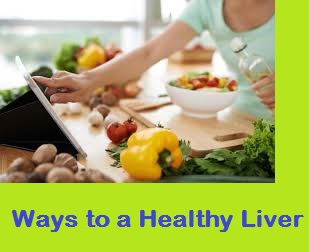Important about liver, Signs, and symptoms of liver disease and to prevent liver disease
Your liver does a lot of things that keep you healthy. It turns nutrients into chemicals your body needs. The liver’s main job is to filter the blood coming from the digestive tract, before passing it to the rest of the body. It filters out poisons. It helps turn food into energy. So when your liver doesn’t work well, that can affect your whole body.
Many diseases and conditions can affect the liver, for example, certain drugs like excessive amounts of acetaminophen, and acetaminophen combination medications like Vicodin and Norco, as well as statins, cirrhosis, alcohol abuse
hepatitis A, B, C, D, and E, infectious mononucleosis (Epstein Barr virus), nonalcoholic fatty liver disease (NASH), and iron overload (hemochromatosis).
signs and symptoms of liver disease
- Skin and eyes that appear yellowish (jaundice)
- Abdominal pain and swelling
- Swelling in the legs and ankles
- Itchy skin
- Dark urine color
- Pale stool color, or bloody or tar-colored stool
- Chronic fatigue
- Nausea or vomiting
- Loss of appetite
- A tendency to bruise easily
Make an appointment with Dr.Husain Bohari if you have any persistent signs or symptoms that worry you. Seek immediate medical attention if you have abdominal pain that is so severe that you can’t stay still.
To prevent liver disease:
- Eat a balanced diet. Avoid high calorie-meals, saturated fat, refined carbohydrates (such as white bread, white rice, and regular pasta) and sugars. Don’t eat raw or undercooked shellfish. For a well-adjusted diet, eat fiber, which you can obtain from fresh fruits, vegetables, whole grain pieces of bread, rice and cereals. Also eat meat (but limit the amount of red meat), dairy (low-fat milk and small amounts of cheese) and fats (the “good” fats that are monounsaturated and polyunsaturated such as vegetable oils, nuts, seeds, and fish). Hydration is essential, so drink a lot of water.
- Exercise regularly. When you exercise consistently, it helps to burn triglycerides for fuel and can also reduce liver fat.
- Maintain a healthy weight. If you’re obese or even somewhat overweight, you’re in danger of having a fatty liver that can lead to non-alcoholic fatty liver disease (NAFLD), one of the fastest-growing forms of liver disease. Weight loss can play an important part in helping to reduce liver fat.
- Avoid toxins. Toxins can injure liver cells. Limit direct contact with toxins from cleaning and aerosol products, insecticides, chemicals, and additives. When you do use aerosols, make sure the room is ventilated, and wear a mask. Don’t smoke.
- Use alcohol responsibly. Alcoholic beverages can create many health problems. They can damage or destroy liver cells and scar your liver. Talk to your doctor about what amount of alcohol is right for you. You may be advised to drink alcohol only in moderation or to quit completely.
- Don’t share personal hygiene items. For example, razors, toothbrushes and nail clippers can carry microscopic levels of blood or other body fluids that may be contaminated.
- Practice safe sex. Unprotected sex or sex with multiple partners increases your risk of hepatitis B and hepatitis C.
- Avoid contaminated needles. Of course, dirty needles aren’t only associated with intravenous drug use. You ought to follow up with a medical practitioner and seek testing following any type of skin penetration involving sharp instruments or needles. Unsafe injection practices, though rare, may occur in a hospital setting, and would need immediate follow-up. Also, use only clean needles for tattoos and body piercings.
- Use medications wisely. When medicines are taken incorrectly by taking too much, the wrong type or by mixing medicines, your liver can be harmed. Never mix alcohol with other drugs and medications even if they’re not taken at the same time. Tell your doctor about any over-the-counter medicines, supplements, and natural or herbal remedies that you use.
- Get vaccinated. There are vaccines for hepatitis A and hepatitis B. Unfortunately, there’s no vaccine against the hepatitis C virus.


